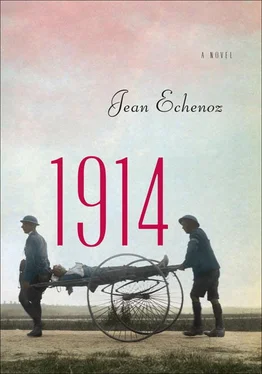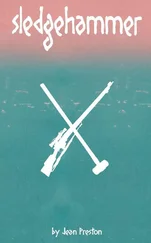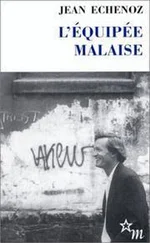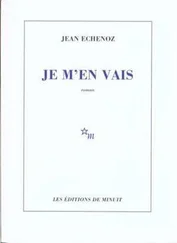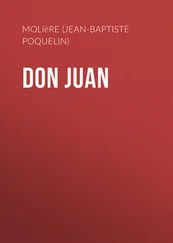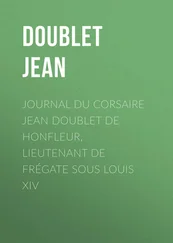To the official she spoke of Charles, gone with the others toward the northeastern border, no one knew exactly where. When she spoke of a possible intervention, with the hope of an assignment other than the infantry, Monteil asked what she might have in mind. Well, suggested Blanche, aside from the factory, which takes up all his time, Charles is very interested in aviation and photography. Perhaps there might be something to be done along those lines, replied Monteil. The Air Service, I believe they call it now. Let me think about this, I might have someone in mind at the ministry, I’ll keep you informed.
To the general practitioner she explained her situation, showing him her figure under her clothing, and the exam did not take long. Palpation, two questions, diagnosis: definitely, declared Monteil, you are. And when will it be, asked Blanche. The beginning of next year, he figured, and I’d say toward the end of January. Blanche said nothing, looked at the window—where nothing was going on or past, not the slightest bird or anything—and then at her hands as she placed them on her belly. And you plan to keep it, of course, remarked Monteil to break the silence. I don’t know yet, said Blanche. Otherwise, he said more softly, there would always be a way. I know, said Blanche, there’s Ruffier. Yes, said Monteil, although, not since the other day, he went off like everyone else but we’re talking about two weeks, it will all be over quickly. Or else his wife could always be of service. Silence again and then no, said Blanche, I think I will keep it.
SO, CHARLES HAD FIGURED, in that August sunshine three months ago: it will all be over in two weeks. Which Monteil had said in turn, because many had believed this back then. Except that two weeks later, four weeks later, after more and still more weeks, once it had begun to rain and the days had grown ever shorter and colder, events did not turn out as expected.
Still, on the day after their arrival in the Ardennes, things hadn’t looked that dire. One couldn’t complain about the weather, a trifle cooler than in the Vendée; the air was pure, crisp, and the men felt good, on the whole. Of course they’d been treated to drilling that morning with packs and gear, but this is fairly normal in the army, it’s practically like playing a game. Charles was still keeping some distance between himself and Anthime—and increasingly vice versa—but they had smiled together at Bossis and his jokes, then laughed unkindly when a mean lieutenant made fun of Padioleau’s way of presenting arms during the drill. Afterward, everyone except those who didn’t know how had written a few postcards made more festive by a magical find, an aperitif: Byrrh [7] Byrrh: Created in 1866, this French aperitif—a blend of red wine, alcohol, grape juice, and quinine—was particularly popular in France in the early twentieth century. Byrrh was sold in the United States until Prohibition and reintroduced to America in 2012.
with a dribble of lemon syrup but not seltzer, unfortunately, only plain water, followed by a lunch that wasn’t so terrible and which they’d even managed to cap with a little nap before going off late that afternoon to buy some plums at a local garden.
It was the day after that when things came into clearer focus: three weeks of almost constant marching. Along roads that grew dusty as the dew dried, the men set out almost every morning at four o’clock, sometimes cutting across fields, never stopping for even a moment. After four or five days, when the weather turned hot and muggy, they were allowed a small respite every half hour from the midpoint of the march on, but men soon began collapsing all the time, especially among the reservists, with Padioleau dropping more often than the others. When they halted for the night, with everybody worn-out, no one wanted to cook so they’d open cans of bully beef without much to wash it down.
For it had dawned on them only too quickly how impossible it was to get wine there, or indeed any beverage except a bit of raw alcohol, on occasion, at a price now increased fivefold by the distillers in the villages through which they passed, where the locals profited greedily from the golden opportunity presented by thirsty troops. This situation would soon change, when headquarters grasped the advantage presented by men properly supplied with drink, since inebriation damped down fear, but things had not yet come to that. Meanwhile and increasingly frequently they still saw a few airplanes passing overhead, it was a distraction, and then the heat began to abate.
Aside from the merchants, however, who also had tobacco, hard sausages, and jams on offer, in the villages but also at the edges of fields along their route small groups of country people gathered to cheer the troops on and surprisingly often, from simple generosity, to give them flowers, fruit, bread, and whatever wine they still had. Sometimes the people of these backwaters had seen the enemy arrive out of nowhere, and sometimes they’d been forced to pay a great deal of money to keep from being bombarded. Trudging along, the soldiers would examine the women gathered by the roadside, noticing some young and pretty ones on occasion. Over toward the town of Écordal, one of them, neither young nor pretty, tossed them some religious medals.
More and more, the men were also passing through certain villages abandoned by their inhabitants or even in ruins, destroyed or burned, perhaps, for not having paid any tribute. The cellars of empty houses had often been looted of everything but the occasional few bottles of Vichy water. The deserted streets were littered with divers damaged articles, and for the most part the troop left them lying there: unused cartridges discarded by a passing company, scattered clothing and linens, pots without handles, empty bottles, a birth certificate, a sick dog, a ten of clubs, a broken shovel.
What also happened was that the situation came into yet clearer focus when rumors began circulating, especially about spying: a traitorous teacher had been surprised, it seemed, in this or that sector, preparing to blow up a bridge. It was even possible, supposedly, that these spies had turned up near Saint-Quentin: two of them had been seen tied to a tree, convicted of having spent the entire night passing information to the enemy via lantern signals, and then as the troop drew closer, they saw the colonel kill them point-blank with his revolver. One evening, as it happened, after they’d been on the march for two weeks, they received orders to blacken their mess tins to reduce their visibility. Unsure how to proceed, Anthime looked at what the others were doing, each in his own way, then coped with a little paste of dirt and boot polish. Yes, it was all definitely becoming clear.
Two weeks after the expedition had set out was also when Anthime suddenly realized that he never saw Charles anymore. Risking a razzing, he spent two days going up and down the company’s ranks as they tramped along, hoping at least to catch a glimpse of him but succeeding only in exhausting himself even further. Then he started asking around, questioning tight-lipped and supercilious noncoms at first, until a more cooperative sergeant told him one evening that Charles had been transferred, no one knew where, a military secret. Anthime hardly reacted at all, he was so dead on his feet.
In the evenings, moreover, it was often quite a challenge to find a place to sleep where the troop had halted. Since there wasn’t much room for the men in the villages, half the company was usually obliged to try sleeping outdoors; when a village was deserted, the luckiest men camped in abandoned houses, where there might still be a bit of furniture and even sometimes beds, but no bedding. Most of the time, though, they’d fix up sleeping spots in the gardens or out in the fields of beets or oats or in the woods, beneath shelters they constructed from branches or in a providential haystack, and once in an abandoned sugar factory. Wherever they wound up, they never found comfort yet fell asleep fast.
Читать дальше
